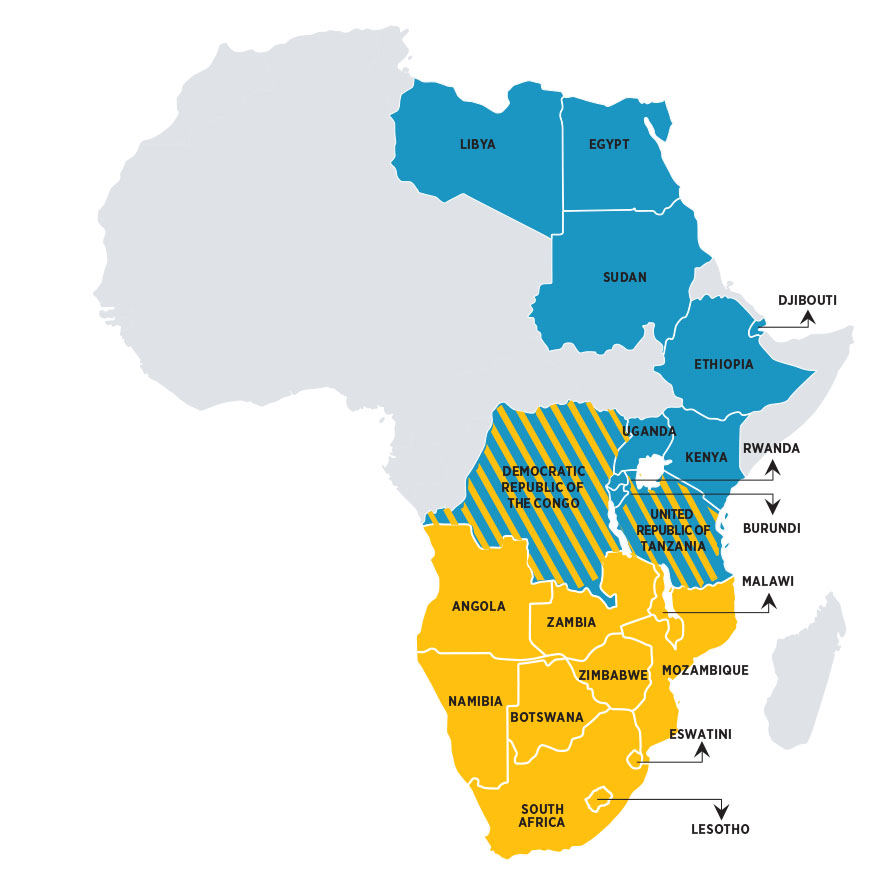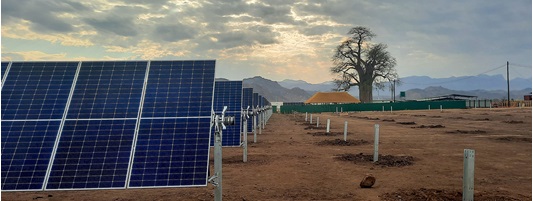Regional Initiatives
Contact us
Send a messageOverview
The Africa Clean Energy Corridor (ACEC) is a regional initiative to accelerate the development of renewable energy potential and cross-border trade of renewable power within the Eastern Africa Power Pool (EAPP) and Southern African Power Pool (SAPP).
Recent improvements in the performance and cost of renewable energy technologies favour Africa, given the continent’s vast renewable energy potential and need to address growing demand. Development of the ACEC is guided by a communiqué, endorsed during the Fourth Assembly of the International Renewable Energy Agency (IRENA) in January 2014, by ministers from Angola, Botswana, Burundi, the Democratic Republic of Congo, Djibouti, Egypt, Ethiopia, Kenya, Lesotho, Malawi, Mozambique, Namibia, South Africa, Sudan, Swaziland, Uganda, the United Republic of Tanzania, Zambia and Zimbabwe. Since then, support for the initiative has expanded, with the additional engagement of more than 30 governments, regional organisations, development partners and financial institutions.
The Communiqué called for an Action Agenda with five main pillars:
- Zoning and Resource Assessment – to site renewable power plants in areas with high resource potential and suitable transmission routes;
- Long-Term Energy Planning Support to African countries, in the form of regional training workshops and power pool assessments and national capacity building programmes, to build countries capacity to handle energy planning processes and tools and to develop and regularly update a long-term energy sector plans (incl. at national and regional level).
- Enabling Frameworks for Investment – to open markets and reduce financing costs;
- Capacity Building – to plan, operate, maintain and oversee power grids and markets with higher shares of renewable power generation;
- Public Information and Awareness – to raise awareness on how large-scale renewable power generation can provide secure, sustainable and affordable energy.
The initiative builds upon the strong political commitment of African leaders to strengthen regional institutions and transmission infrastructure, forming large competitive markets and lowering costs across production sectors. By creating a larger regional electricity market, the ACEC could attract investments to meet 40–50% of power needs in the EAPP and SAPP regions by 2030. The ACEC requires up to USD 25 billion per year of investments in power generation until 2030, with an additional USD 15 billion per year for grid infrastructure. Combined efforts will diversify resource availability, improve energy security and foster investment opportunities and job growth. Scaling up renewable energy also offers a comprehensive opportunity to avoid carbon-intensive infrastructure lock-ins and leapfrog towards a low-carbon future.
The report on Scaling up renewable energy deployment in Africa summarises the impact of IRENA's engagement with the continent.

Photo gallery
Past Events
-
16-19 January 2024 Nadi, Fiji
Pacific SIDS Project Finance Capacity Building Workshop










